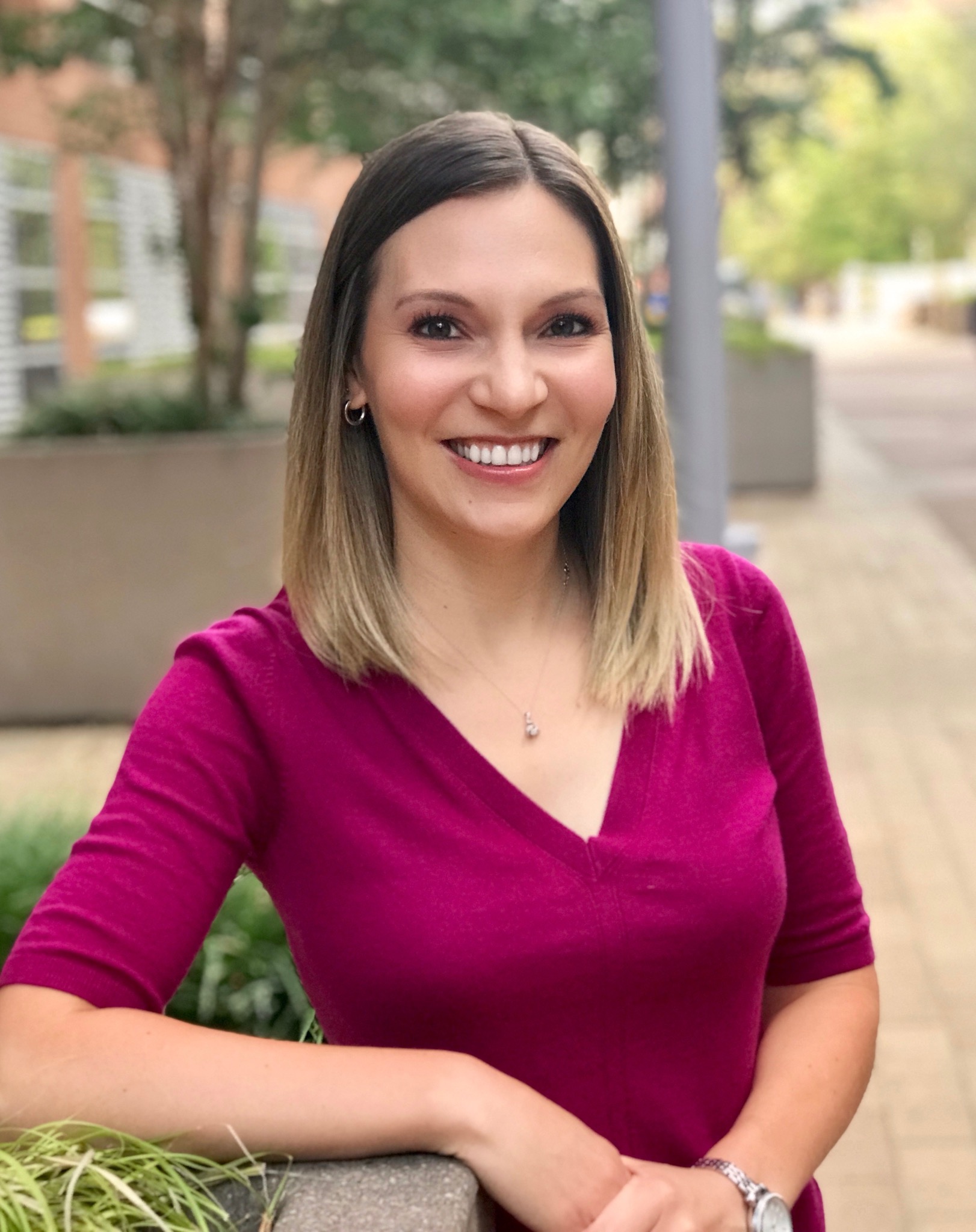
HOPA member Katie Gatwood, PharmD, BCOP, practices at Vanderbilt University as a Stem Cell Transplant and Cellular Therapy Clinical Pharmacist Specialist. She was recently honored to receive the 2021 American Society for Transplantation and Cellular Therapy Pharmacy Special Interest Group New Practitioner Award. In this Member Spotlight, Dr. Gatwood reflects on her award and career.
Please describe your current position and the types of patients you see in clinical practice.
I am a Stem Cell Transplant & Cellular Therapy Clinical Pharmacist Specialist at Vanderbilt University Medical Center in Nashville, TN. I care for autologous and allogeneic stem cell transplant and CAR T-cell patients in both the inpatient and ambulatory setting, including many patients receiving therapy on clinical trials. We are a large transplant center, performing approximately 350-400 transplants per year.
What are your areas of interest pertaining to research and education?
My areas of interest for both research and education include veno-occlusive disease, graft-versus-host disease, and the impact of oncology pharmacists in ambulatory practice.
Please tell us about your American Society for Transplantation and Cellular Therapy (ASTCT) Pharmacy Special Interest Group (SIG) New Practitioner Award and what this means to you?
I am deeply humbled and grateful to have received the 2021 ASTCT Pharmacy SIG New Practitioner Award. To have been nominated and selected to receive an award from your mentors and colleagues is one of the highest honors you can receive. It feels like I have truly “arrived” as a practitioner and that all the hard work and effort I have put in to establishing myself as a cellular therapy pharmacy expert and patient advocate has been worthwhile. However, I know this is only the beginning of my career and there is still so much more I can do to help improve the care of stem cell transplant patients and advance the role of the pharmacist in their care. This award gives me further motivation to keep working hard into the next phase of my career!
What have you done to improve oncology pharmacy care at your place(s) of employment that may have contributed to your winning this award?
When I started my position here, it was to help create the first pharmacist position in the ambulatory stem cell transplant clinic. My colleague and I worked very hard to establish the pharmacist role in the clinic and create collaborative practice agreements to accomplish our work and care for patients more efficiently. This is especially important in our transplant center as the vast majority of our transplants are performed in the outpatient setting. Since then, I have also assisted in getting our CAR T-cell program established and helping create many of the standard practice guidelines for management of CAR T-cell patients.
How long have you been a member of HOPA, and how have you been involved?
I have been a HOPA member since 2015, first joining when I was a PGY2 resident. I have greatly enjoyed being an active member and have been most heavily involved with the BCOP Annual Conference Programming Subcommittee, for which I am the current committee chair. I have also presented at the HOPA Annual Conference in both 2018 and 2019 as well as authored some articles for the HOPA Newsletter. I look forward to maintaining my activity in the organization for years to come as it has been very rewarding so far!
What is one of the proudest moments of your career?
The proudest moment thus far in my career was receiving the 2021 TCT Pharmacy SIG New Practitioner Award!
Oncology pharmacists can have a profound influence on their patients and trainees. What would you like your patients, trainees, and colleagues to know about you?
I would want them to know that I actually did not originally think I wanted to practice in oncology – so they should always keep an open mind throughout their training experiences! I went into residency wanting to practice in pediatrics. However, my first rotation was in a stem cell transplant clinic, and I found myself fascinated by the patient population and the immunology aspects of transplant. I wanted to learn as much as I could about it. It actually took some of my preceptors and mentors pointing this out to me during the rotation for me to fully realize my passion for it, and, from there, my career trajectory was forever changed.
What advice would you offer to other oncology pharmacists who are either just beginning their career or expanding their role?
I would recommend to keep strong ties to mentorship both within pharmacy as well as with physicians on your team. As I have progressed more in my career, the physicians have really become some of my biggest mentors and supporters. They have helped me find new ways to become involved and contribute to research and other professional activities both within my own institution and within the transplant community as a whole. They also provide invaluable education that has helped me continue to advance my knowledge within my field and identify new and innovative opportunities for pharmacist involvement.
Interviewers
Jeff Engle, PharmD, MS
Hematology/Oncology Clinical Pharmacist
M Health Fairview Cancer Care
Minneapolis, MN
Sidney Keisner, PharmD, BCOP
Associate Professor of Pharmacy Practice
University of Arkansas for Medical Sciences College of Pharmacy
Little Rock, AR
